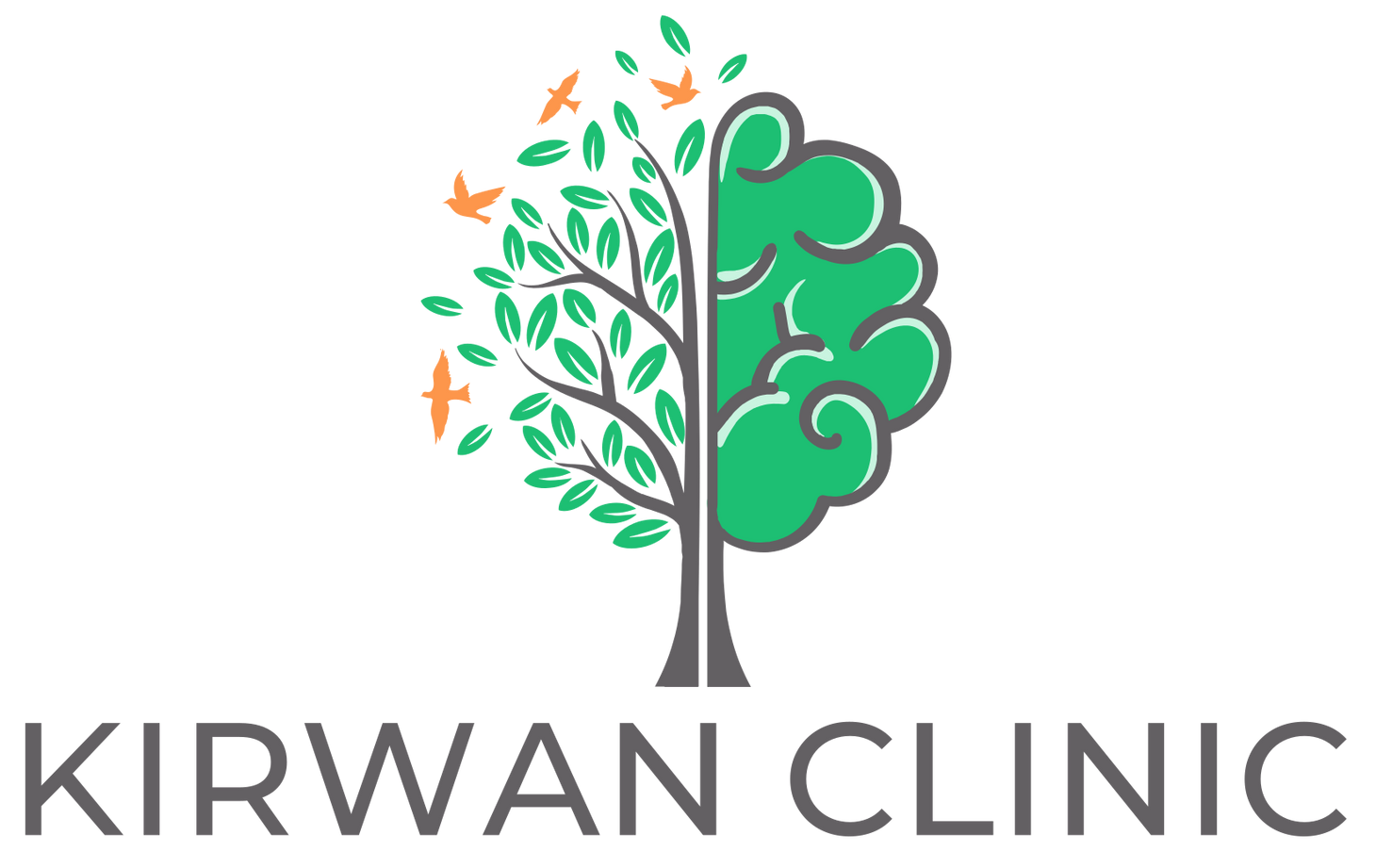Acceptance and Commitment Therapy
What is Acceptance and Commitment Therapy?
Acceptance and Commitment Therapy (ACT) is a psychological therapy that helps individuals develop psychological flexibility by accepting their thoughts and feelings rather than avoiding or fighting them. The focus is on living by our values and noticing when our thoughts and feelings move us ‘towards’ this, compared to letting them be there in the background. This way, mindfulness and acceptance of our internal experiences can create a healthier and more fruitful relationship with them.
Despite challenges, ACT integrates mindfulness, behavioural therapy, and cognitive therapy to help individuals commit to values-based actions. The goal is not to eliminate negative emotions but to build resilience and live meaningfully by aligning actions with meaningful values.
Who is Suitable for Acceptance and Commitment Therapy?
ACT is beneficial for a wide range of individuals, including those experiencing:
- Anxiety Disorders – Helps individuals manage worry and intrusive thoughts without avoidance.
- Depression – Encourages engagement in meaningful activities despite low mood.
- Chronic Pain – Assists in accepting pain and improving quality of life.
- Stress and Burnout – Useful for professionals, caregivers, and students managing work or personal stress.
- Post-Traumatic Stress Disorder (PTSD) – Supports emotional processing of trauma while reducing avoidance behaviours.
- Obsessive-Compulsive Disorder (OCD) – Helps reduce compulsions by accepting distressing thoughts.
- Eating Disorders – Encourages a balanced relationship between food and body image.
- Substance Use Disorders – Aids in breaking unhealthy coping mechanisms and adopting positive behavioural changes.
- Adjustment Issues – Helps individuals struggling with major life transitions, such as grief, job loss, or illness.
Benefits of Acceptance and Commitment Therapy
- Increased Psychological Flexibility – Enhances the ability to adapt to emotional challenges and take meaningful action.
- Reduced Emotional Distress – Helps individuals manage anxiety, depression, and stress without feeling overwhelmed.
- Improved Coping Strategies – Encourages healthier responses to complex thoughts and emotions.
- Enhanced Mindfulness Skills – Teaches individuals to stay present and engaged.
- Greater Life Satisfaction – Helps align behaviours with personal values, leading to a more fulfilling life.
- Healthier Relationship with Thoughts – Reduces over-identification with negative thoughts and promotes cognitive ‘defusion’.
- Increased Commitment to Meaningful Goals – Encourages taking action even when faced with discomfort.
Core Processes in Acceptance and Commitment Therapy
ACT interventions typically involve six core processes, which can be delivered through different formats:
- Acceptance – Encouraging individuals to accept emotions and thoughts without trying to suppress or control them.
- Cognitive Defusion – Teaching techniques to reduce the impact of negative thoughts (e.g., seeing thoughts as passing events rather than absolute truths).
- Mindfulness – Focusing on the present moment without judgment.
- Self-as-Context – Developing awareness that one's identity is more than one's thoughts and feelings.
- Values Clarification – Helping individuals identify and commit to personal values that guide their actions.
- Committed Action – Encouraging goal-setting and behavioural changes aligned with values.
ACT can be delivered through various approaches:
- Individual Therapy – One-on-one sessions with a therapist to address personal challenges.
- Group Therapy involves applying ACT principles in a group setting, which is often helpful for shared experiences like stress management or chronic illness.
- Workshops and Online Programs – Structured programs that teach ACT techniques through guided exercises.
- Self-Help Approaches – Books, apps, and online resources that individuals can use independently.
Alternatives and Complements to Acceptance and Commitment Therapy
While ACT is effective for many individuals, there are alternative approaches depending on a person’s needs:
- Cognitive Behavioral Therapy (CBT) – Focuses on identifying and changing negative thought patterns and behaviours.
- Dialectical Behavior Therapy (DBT) – Combines cognitive therapy with emotional regulation techniques, which is beneficial for borderline personality disorder and emotional dysregulation.
- Mindfulness-Based Stress Reduction (MBSR) – Focuses on mindfulness meditation to reduce stress and improve overall well-being.
- Exposure Therapy – Helps individuals gradually confront fears and reduce avoidance behaviours.
- Medication – In some cases, medication may be used alongside therapy to manage anxiety, depression, or other mental health conditions.
Preparation Before Starting Acceptance and Commitment Therapy
Before starting ACT, consider the following steps to prepare for the process effectively:
- Understand the Therapy Approach – Learn about ACT principles, including mindfulness, acceptance, and commitment to values-based action.
- Set Personal Goals – Identify what you hope to achieve through therapy, such as reducing anxiety, improving emotional flexibility, or managing chronic pain.
- Reflect on Current Challenges – Think about emotional or behavioural patterns that may hold you back, such as avoidance of discomfort or negative self-talk.
- Adopt an Open Mindset – ACT involves embracing discomfort rather than avoiding it, so being open to new perspectives is key.
- Commit to the Process – Therapy requires consistency and effort; be prepared to practice techniques outside of sessions.
Some people also benefit from journaling their thoughts and emotions before therapy begins, which helps them identify areas for improvement.
What Happens During Acceptance and Commitment Therapy Sessions?
A typical session may include:
- Discussion of personal experiences – The therapist encourages the exploration of complex thoughts and emotions.
- Mindfulness exercises – Breathing techniques, guided meditation, or awareness exercises.
- Role-playing or metaphors – To illustrate ACT concepts and improve understanding.
- Between session assignments – Journaling, behavioural experiments, or value-based actions to practice outside therapy.
Therapists use gentle guidance rather than strict instructions, helping individuals develop self-awareness and psychological flexibility. The benefits are often most significant for individuals who actively engage in therapy and practice mindfulness and value-driven actions outside sessions.
It is worth noting that, as with any form of therapy, there is an emphasis on discovering the cognitive and emotional processes that arise when a person is faced with challenging situations. This can feel uncomfortable and stressful, but your therapist will aim to guide you through it in a way that feels manageable and well-supported.
Lastly, in common with all therapy types, the rate of progress will usually depend on the complexity, breadth, and duration of the person’s difficulties; accordingly, significant progress may be made within 4-6 sessions or may require 10 sessions and beyond.
Books on Acceptance and Commitment Therapy
- "The Happiness Trap" by Dr. Russ Harris
- "ACT Made Simple" by Dr. Russ Harris
- "A Liberated Mind" by Dr. Steven C. Hayes
- "Get Out of Your Mind and Into Your Life" by Dr. Steven C. Hayes
- "The Reality Slap" by Dr. Russ Harris


